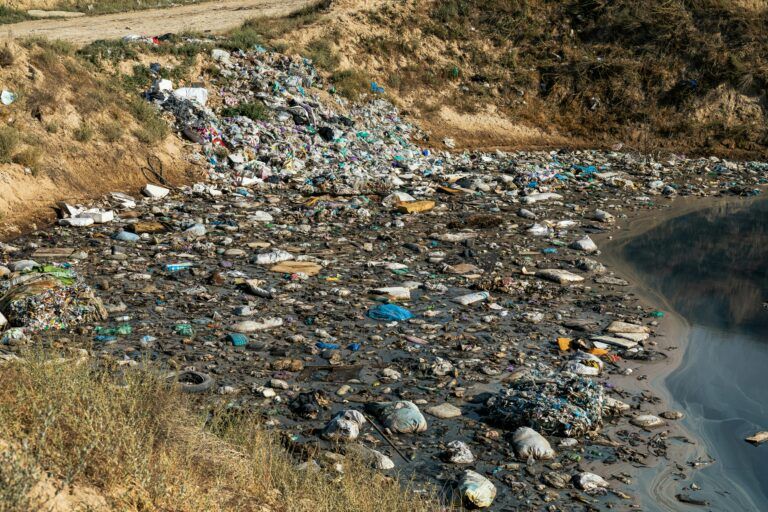(April 19, 2024) – Countries participating in negotiations on the draft Global Plastics Treaty next week should ensure the treaty effectively protects rights by taking a lifecycle approach to plastic pollution, capping plastic production, banning the use of toxic chemical additives in plastics, and making it legally-binding, said Climate Rights International today. The fourth negotiating session (INC-4) of the Global Plastics Treaty will be held April 23-29 in Ottawa, Canada.
According to the International Energy Agency, petrochemicals are rapidly becoming the largest driver of global oil consumption, projected to account for roughly half of the growth in oil demand by 2050. In addition to the serious impacts of plastics on human rights, the production of plastics is a significant climate change driver. A new study by the Lawrence Berkeley National Laboratory estimates that emissions from plastic production is likely to account for 21 to 31 percent of the remaining carbon budget to keep global temperatures below 1.5°C. A cap on plastic production is key to mitigating these harmful greenhouse gas emissions.
“From cradle to grave, plastics pose serious threats to human rights,” said Krista Shennum, researcher at Climate Rights International. “Plastic particles are in the air we breathe, the water we drink, and in our bodies. Governments should work together to increase the treaty ambition, including by banning toxic chemicals in plastics and setting a cap on plastic production.”
Despite three previous meetings by negotiators, the current 69-page draft text still lacks agreement on key provisions, such as the scope and objective of the treaty.
Climate Rights International urged parties to accept the recommendations of the United Nations Special Rapporteurs on toxics and on the right to a clean, healthy, and sustainable environment. The two UN human rights experts published a letter calling for the treaty to integrate human rights language and principles, including prevention of harm, transparency, polluter-pays, meaningful participation, international solidarity, and accountability. The Special Rapporteurs state that, “A human rights-based approach to the plastic pollution treaty is critical to its effectiveness, equity and legitimacy, and will ensure that the solutions to be implemented can actually solve the global plastic crisis at its roots and address the legacy plastics burden.”
Civil society organizations, including the Center for International Environmental Law and Environment Investigation Agency, have also analyzed the draft text and published an annotated treaty draft and recommendations for INC-4, which can be useful tools for negotiators, as well as for civil society groups and activists following the negotiations.
“A robust Global Plastics Treaty can disrupt the disastrous trend of growing human rights abuses, environmental damage, and climate destruction by taking a lifecycle approach to plastic pollution that addresses the full impacts of plastic production, use, and disposal on human health and the environment,” said Shennum.
Efforts to finalize a Global Plastics Treaty are coming at a critical time. As global energy systems transition away from fossil fuels, major oil and gas companies are increasing investments in the extraction of fossil fuels and production of plastics.
The United Nations Environment Program (UNEP), which is mandated to develop the treaty, aims to complete the negotiations by the end of 2024, making INC-4 critical for finalizing and increasing the ambition of the treaty text.
“For the Global Plastics Treaty to successfully minimize plastic pollution and the impacts of plastics on people and the environment, countries must agree to cap plastic production and remove toxic chemicals from plastics,” said Krista Shennum. “Country negotiators should treat this treaty for what it is: a once-in-a-generation opportunity to protect human rights and the environment.”
Photo Credit: Plastic pollution. Collab Media via Unsplash. Unsplash license.






